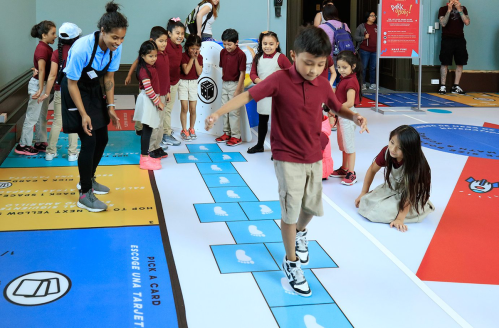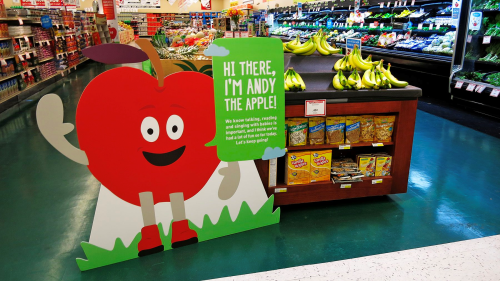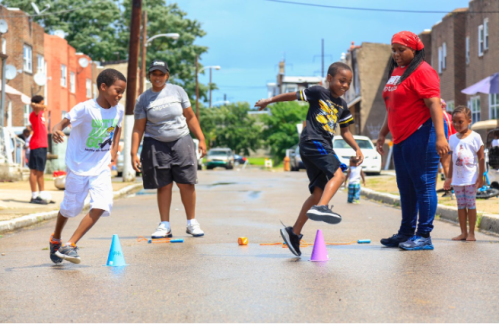Play is often talked about as if it were a relief from serious learning. But for children play is serious learning. Play is really the work of childhood.
Fred Rogers
On March 26, the United Nations declared an international day of play to take place annually on June 11th. With over 140 countries as partners, this announcement cements not only every child’s Right to Play, but also highlights the many benefits of play for children and adults alike.
Play, whether structured or unstructured, is often considered frivolous and not taken seriously. The role of play in children’s lives has long been devalued, prompting Professor Ed Zigler to claim in 2009 that “Play is under siege.” It is still under siege today. A global study across 36 countries indicates that 78% of children say adults do not always think playing is important. Further, 73% of children do not believe adults take play as a way to help them seriously.
However, literature states that play is fundamentally important for 21st century skills such as problem-solving, collaboration, creativity, and more. Further, it can relieve stress and support emotional regulation. Play is not just for children – evidence indicates that it is critical for adults too.
Trends in the past five years suggest that increasing opportunities for play and an awareness of the importance of play could be particularly potent now. There has been a rapid rise in stressors that impact human well-being. The American Psychological Association suggests that while COVID-19 officially ended on May 11, 2023, the sustained collective stress from the pandemic, from disasters due to climate change, political and economic upheaval, discrimination, and political polarization around the world has left a generation with mental health and chronic health crises that are yet unresolved. The World Health Organization (WHO), for example, reports a 25% increase in anxiety and depression since the pandemic. Among children alone, the National Institute of Health in the US notes that across 13 pooled studies, 15% of children and adolescents suffer from depression, 9% from anxiety, 6% from concentration problems, and 9% from sleep problems. Moreover, the United Nations World Happiness Report released in March of 2024 showed that in 10 to 15 year olds living in high income countries, happiness levels are declining.
The news is also peppered with headlines about learning loss. In 2022, the New York Times reported that “The Pandemic erased two decades of progress in reading and math.” A review in August of 2023 by Jakubowski and colleagues for the World Bank found similar data across an international data set – largely due to school closures around the globe.
Clearly people, young and old, are suffering. Dismissing their needs is a disservice, but so too is telling ourselves a story that everything is terrible. The narratives we tell ourselves are the narratives that children hear and internalize. Finding ways to experience, see, and focus on the moments of joy, connection, compassion, exchange, and creation in our lives can be one small, doable thing to help change the story we are telling ourselves, and perhaps most importantly, the story we are telling our children. Luckily one way to do this, play, is free and readily available in every community in the world.
Extensive scientific research suggests that play could help remediate these crises of health and learning. Some of the early data in this area comes from animal literature. Both humans and animals evolved to play. Indeed, a wide swath of animals play, from lizards and honeybees to monkeys, dogs, and humans. Data suggests that rats who engaged in rough and tumble play are more mature emotionally and have better developed problem-solving areas of the brain. Additionally, brains of rats that had object play are also distinct from those of rats that were deprived of play resulting in notable in differences in social interaction, problem solving (maze learning), and flexibility.
Human research is more abundant for children than for adults. It too, however, suggests that play is important for well-being, socialization, learning, and risk taking. In terms of coping skills, research suggests that because play is considered safe and without real consequences, it can be used to reduce anxiety and can help children cope with adverse experiences. A body of literature also suggests that risky play can offer social and physical advantages and can enhance a sense of agency and wellbeing.
Research on the value of play for learning is also abundant. In 2018, Dr. Michael Yogman of Harvard University and his colleagues penned a piece entitled The Power of Play for the American Academy of Pediatrics that reviews much of this evidence. This report calls for a Prescription for Child’s Play. Hirsh-Pasek and colleagues offer an even more recent review of the data in a global report titled Where global science meets playful learning. UNESCO’s Happy Schools initiative, released in April of 2024 makes the case for why having more joy and playful learning in schools could empower children, increase wellbeing, and foster learning.
Finally, while literature on adults is scant, adults could also benefit from a designated day of play. A CNN report from June 2023 offers a review of areas in which adults can benefit from more play in their lives. Written by Trudy Meehan from the Royal College of Surgeons in Dublin, the piece documents the benefits of joy in reducing depression and increasing social connectedness.
Some may see the declaration of an International Day of Play as a frivolous pursuit by a United Nations that is grappling with multiple political, economic, and environmental crises. But we applaud the move. We know much support is needed for the deep and important work that addresses the current polycrisis of armed conflict, rising authoritarianism, climate emergencies, racial injustice, and a global infodemic undermining the development of collaborative solutions. What an International Day of Play can do is, at minimum, remind us that there is power in joy and power in seeing the joy in life. Lifting up the power of play and allowing children (and adults) of all ages to play more is one immediate thing we can do to enrich our brain power and support our mental and physical health and wellbeing.
-
Acknowledgements and disclosures
The Brookings Institution is a nonprofit organization based in Washington, D.C. Our mission is to conduct in-depth, nonpartisan research to improve policy and governance at local, national, and global levels. The conclusions and recommendations of any Brookings publication are solely those of its author(s), and do not reflect the views or policies of the Institution, its management, its other scholars, or the funders mentioned below.
The LEGO Foundation is a donor to the Brookings Institution. Brookings recognizes that the value it provides is in the absolute commitment to quality, independence, and impact. The findings, interpretations, and conclusions in this report are not influenced by any donation.
The Brookings Institution is committed to quality, independence, and impact.
We are supported by a diverse array of funders. In line with our values and policies, each Brookings publication represents the sole views of its author(s).









Commentary
Why play is serious work
For children and adults
May 2, 2024